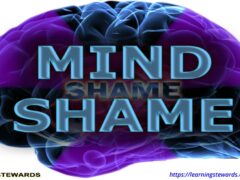What happens to the learning of children who grow up chronically feeling not good enough at learning?Chronic learning performance anxiety negatively affects the learning-health of most of our children.
Search results for "math-anxiety"
How Shyness Affects Learning Spoken and Written Language
When a child is shame-averse to expressing what they are reading, they are, necessarily, less able to learn to read.
Share this:
- Click to share on Facebook (Opens in new window)
- Click to share on Twitter (Opens in new window)
- Click to share on LinkedIn (Opens in new window)
- Click to share on Pinterest (Opens in new window)
- Click to share on Pocket (Opens in new window)
- Click to share on Reddit (Opens in new window)
- Click to share on Telegram (Opens in new window)
- Click to share on Tumblr (Opens in new window)
- Click to share on WhatsApp (Opens in new window)
- Click to email a link to a friend (Opens in new window)
- Click to print (Opens in new window)
MUTISM & MIND-SHAME
Refusing to speak or speaking in a whisper spares the child from the possible humiliation or embarrassment of saying the “wrong” thing.
Share this:
- Click to share on Facebook (Opens in new window)
- Click to share on Twitter (Opens in new window)
- Click to share on LinkedIn (Opens in new window)
- Click to share on Pinterest (Opens in new window)
- Click to share on Pocket (Opens in new window)
- Click to share on Reddit (Opens in new window)
- Click to share on Telegram (Opens in new window)
- Click to share on Tumblr (Opens in new window)
- Click to share on WhatsApp (Opens in new window)
- Click to email a link to a friend (Opens in new window)
- Click to print (Opens in new window)
Major Update to Children of the Code – Two New Video Chapters
The Children of the Code site has been upgraded to much higher quality videos that can be run on your tablets, smartphones, etc. ++ Two new chapters: “What is Reading?” and “Paradigm Inertia”
Share this:
- Click to share on Facebook (Opens in new window)
- Click to share on Twitter (Opens in new window)
- Click to share on LinkedIn (Opens in new window)
- Click to share on Pinterest (Opens in new window)
- Click to share on Pocket (Opens in new window)
- Click to share on Reddit (Opens in new window)
- Click to share on Telegram (Opens in new window)
- Click to share on Tumblr (Opens in new window)
- Click to share on WhatsApp (Opens in new window)
- Click to email a link to a friend (Opens in new window)
- Click to print (Opens in new window)
Neuroscience: Neural Correlates of Math Anxiety
Since posting my previous piece (When Learning Hurts – Toxic Learning) earlier this week, another blog focused on medical neuroscience posted a great overview of math anxiety called “Brain Markers of Math Anxiety“. The post refers to a study “The Neurodevelopmental Basis of Math Anxiety” that has identified the neural correlates of math anxiety for […]
Share this:
- Click to share on Facebook (Opens in new window)
- Click to share on Twitter (Opens in new window)
- Click to share on LinkedIn (Opens in new window)
- Click to share on Pinterest (Opens in new window)
- Click to share on Pocket (Opens in new window)
- Click to share on Reddit (Opens in new window)
- Click to share on Telegram (Opens in new window)
- Click to share on Tumblr (Opens in new window)
- Click to share on WhatsApp (Opens in new window)
- Click to email a link to a friend (Opens in new window)
- Click to print (Opens in new window)
When Learning Hurts – Toxic Learning
What and how students learn can have toxic effects on how well they learn thereafter. It’s vitally important that educators understand this.
Share this:
- Click to share on Facebook (Opens in new window)
- Click to share on Twitter (Opens in new window)
- Click to share on LinkedIn (Opens in new window)
- Click to share on Pinterest (Opens in new window)
- Click to share on Pocket (Opens in new window)
- Click to share on Reddit (Opens in new window)
- Click to share on Telegram (Opens in new window)
- Click to share on Tumblr (Opens in new window)
- Click to share on WhatsApp (Opens in new window)
- Click to email a link to a friend (Opens in new window)
- Click to print (Opens in new window)

Mind-Shame
Shame is a pain in the self – a pain that results from our attention, often abruptly, intensely, and uncomfortably, focusing on what is ‘wrong’ with ‘me’. We don’t have to learn to feel shame. Like fear, anger, interest, and joy, we come innately able to experience the feeling, the sensation, of shame. However, we […]
Share this:
- Click to share on Facebook (Opens in new window)
- Click to share on Twitter (Opens in new window)
- Click to share on LinkedIn (Opens in new window)
- Click to share on Pinterest (Opens in new window)
- Click to share on Pocket (Opens in new window)
- Click to share on Reddit (Opens in new window)
- Click to share on Telegram (Opens in new window)
- Click to share on Tumblr (Opens in new window)
- Click to share on WhatsApp (Opens in new window)
- Click to email a link to a friend (Opens in new window)
- Click to print (Opens in new window)
